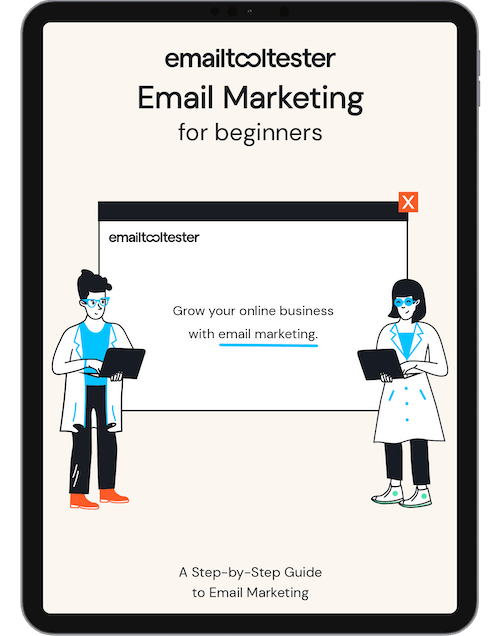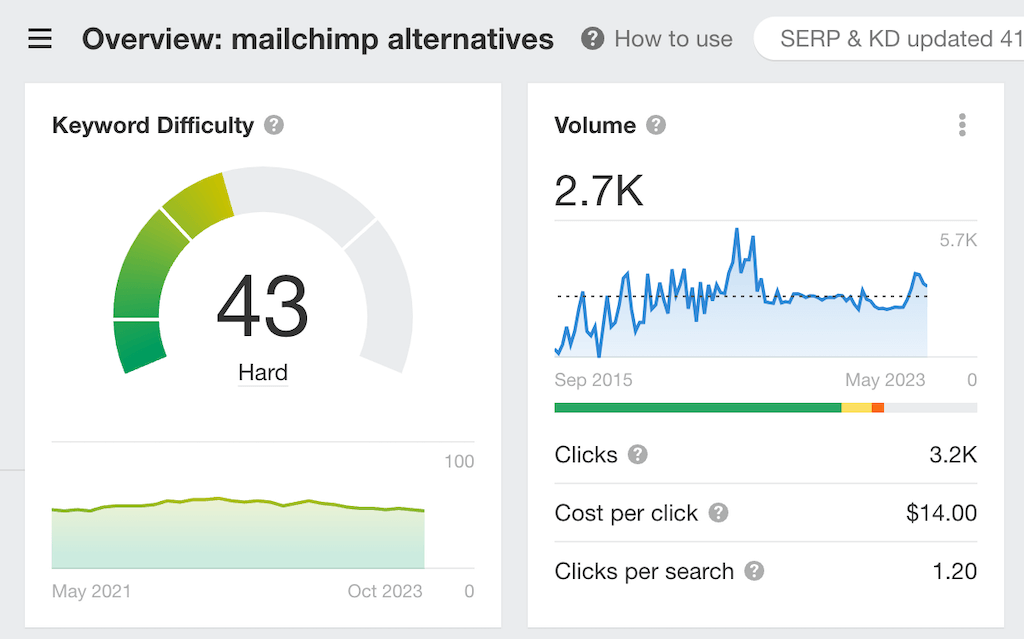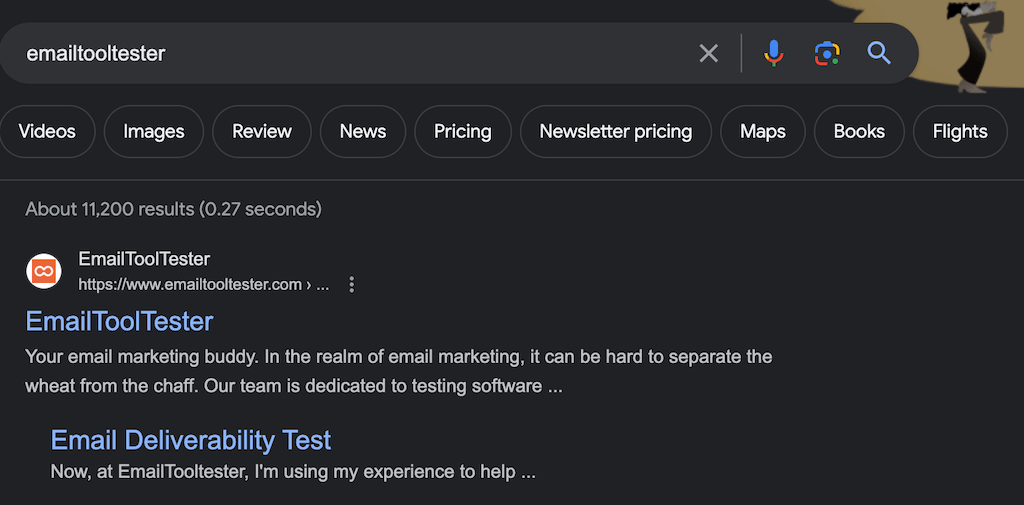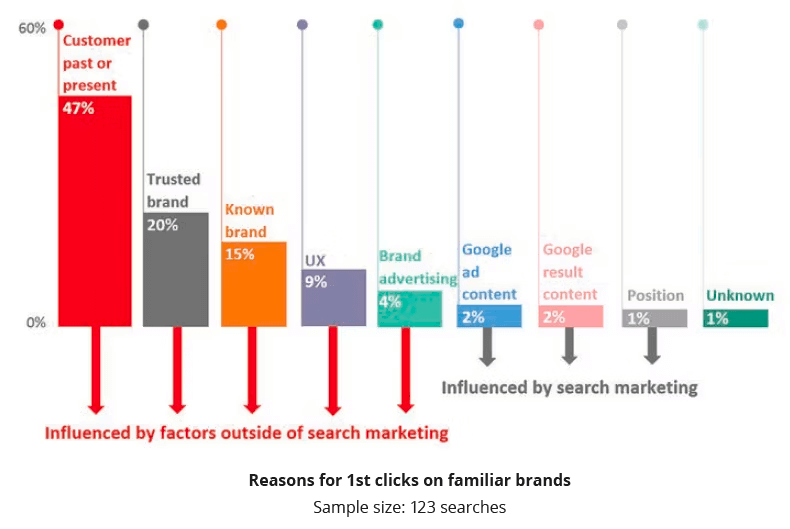EmailTooltester is all about email marketing. But to drive traffic to our website, we rely largely on SEO.
As someone working in SEO, you are probably facing all kinds of recent Google algorithm changes. And you might ask yourself the same questions I have: how can I use email marketing to increase my website's traffic?
I can tell you, we are confronted with similar issues here. Google has not been very kind with affiliate marketers (unless you are working for a huge publication like Forbes or CNET). So the best we can hope for right now, is organic search traffic that is at least not declining. But the days of growing traffic seem to be over.
For all these reasons, email marketing became quite fashionable again. And I can tell you: there are lots of synergies between SEO and email marketing.
Let’s find out:
1) How you can put your SEO skills to good use (list building etc.),
2) What email marketing can do to help your SEO and
3) How you can get started with email marketing.
How SEO Helps Email Marketing
The job SEOs do best is to drive traffic. And these are the ways you can best take advantage of your SEO traffic:
Driving Traffic for Email Sign-ups
Optimizing your website for certain search terms can significantly increase the visibility of your landing pages. EmailTooltester, for example, ranks on Google’s page 1 for the search term “email marketing ebook”.
This lead magnet results in a constant stream of people downloading our Email Marketing Crash Course ebook. And since you have to sign up to our newsletter list, we gain new subscribers as well.

And even if your traffic is not that targeted, the more organic visitors your website receives, the higher your chance of prospects signing up for your email list. This lays the foundation for building a lasting relationship with your audience (which can create a virtuous cycle, thereby boosting your SEO again).
Better Targeting
Understanding the keywords and topics that drive traffic to your site can be instrumental in tailoring your email content. This alignment ensures that the material you send out resonates well with your audience.
The only thing you have to keep in mind is that search queries can be very specific to a problem someone faces at a certain moment. For example, according to Ahrefs, an SEO keyword tool, there are a healthy 10K searches per month for the keyword “Mailchimp alternative”. Does that mean it makes great content for your newsletter? Maybe yes, but chances are that it’s not.

Screenshot from Ahrefs
Looking for an alternative to a product is one of these specific problems you have for a limited amount of time. But once you’ve found a product you’re happy with, you couldn’t care less about said product’s alternatives, right?
That’s why problem-based keywords and topics might be better reserved for an automated nurture campaign (autoresponder), where you know the recipient is likely to be experiencing the problem.
You are often much better off just sending a sequence of automatic emails, such as an autoresponder (e.g. a welcome email and 4 other predefined emails that you send out over the course of 5 days).
What Email Marketing can do for your SEO
Now let’s swap the perspective. Email marketing can influence how your brand performs in search engines in various ways.
Increasing your Conversion Rate
SEO isn't getting easier due to a number of factors (big brands dominating, the presence of Reddit, etc.). That's why you need to make the most of the traffic you are still receiving.
Very often you will face the challenge that people find your website through Google, browse around but then leave, never to come back ever again. In many cases, they won't have purchased anything or clicked any ads or affiliate links. And unless people remember your website's URL, you may have lost them forever.
Capturing their email address gives you a second chance. You get “warm” leads, as they say, people who are genuinely interested in the solution you provide. Sending them a couple of automated follow-up emails, will make all the difference.
Even better if people regularly need your product, service or information. Then you can also send them a weekly or monthly newsletter.
Strengthening Your Brand Presence
Email marketing campaigns are an important touchpoint in a customer journey that can affect your brand positively if done right. By consistently delivering valuable content to subscribers (and this is really crucial!), your brand-related searches on search engines can thereby increase.
There are two important search types that are highly relevant for your SEO:
Brand searches (in our case, for instance, searches for “emailtooltester”), where users look up the brand name directly, are bound to increase if you are top of mind with your audience. Email marketing can help you achieve this ‘top of mind’ status as it’s a direct line of communication to your customers. Sending regular emails will remind them of your existence and hopefully also about the quality of your offering.
When they come across a question or need that has to do with your industry, they are likely to google your brand name.

Googling my own company
Navigational searches recently became a hot topic as they seem to be a big factor in Google’s Helpful Content update(s). A navigational search is when users search for specific pages or content on the site. In our case, an example could be the query:
“emailtooltester activecampaign review”.
These types of searches are indicators of strong brand presence and loyalty, which search engines like Google view favorably. The more brand and navigational searches a site receives, the higher it will rank in the SERPs (Search Engine Results Pages) for more generic, non-branded terms, creating a positive feedback loop that further solidifies your brand's online presence.
Repeat Visits: Another factor that the Google algorithm considers is visitors who return to a website, which it can analyze through Google Chrome and Android data. Email marketing is extremely effective at bringing visitors back to your website, which in turn will strengthen your brand's presence on Google.
Improving Click-Through Rates (CTR) in SERPs
When people become familiar with a brand through regular and positive email interactions, they are more likely to click on the brand's listings in the search results – even if you are not showing up in the number 1 position.
This is because a known brand instills a sense of trust. Econsultancy ran a study where it found that 82% of respondents would click on a familiar brand name, and here, it gets really interesting, regardless of where it ranked on the SERP.

Branding effect on clicks in Google – Econsultancy
The study also showed that you don’t even need to be a trusted brand for an increased click-through rate. Just the mere fact that they’ve heard your name before led to a 15% higher chance of receiving that click on Google.
Over time, higher click-through rates signal to search engines that the website is reputable and relevant to the search query, thereby improving the site's ranking in the SERPs.
Encouraging Reviews for Local SEO
Requesting reviews from satisfied customers through email campaigns can be an effective way to boost local SEO. Positive reviews on platforms like Google My Business not only enhance the brand's reputation but also its rankings in local search results. This can be particularly beneficial for local businesses striving to increase their visibility in the community.
Building Personal Relationships for Backlinks
Establishing a personal rapport with readers through email marketing can pave the way for acquiring more backlinks. When your audience finds value in your content, they are more likely to share it within their social networks or on their website, provided they have one.
Backlinks are invaluable for SEO as they contribute to the site’s authority and the E-E-A-T factors (Experience, Expertise, Authoritativeness, and Trustworthiness) that Google uses to evaluate sites.
Facilitating Better Content Creation
Engaging with your readers through email can provide invaluable insights into their interests and preferences. This feedback can be a goldmine for generating content ideas that resonate with your audience.
Additionally, understanding the language and terminology your audience uses can help in optimizing your content for SEO, making it more discoverable on search engines. And it allows you to target new keywords that may not even be shown on your favorite keyword tool yet.
Increasing Overall Website Traffic
By nurturing an engaged email subscriber base, you can direct a steady stream of traffic to your website. Regular email updates about new content, products, or offers entice subscribers to visit your site. Over time, this increased traffic can signal to search engines that your site is valuable and relevant, potentially improving your SEO standings.
Conclusion: How Email Marketing Can Help SEO
Getting traffic through SEO isn't as easy as it used to be. So it makes sense for niche website owners and other content creators to diversify their traffic stream.
While different, both marketing methods complement each other: SEO helps attract potential customers by improving your online visibility and thereby boosting signups for your email newsletter.
On the other hand, email marketing enables a direct and more personal interaction with your audience, which benefits your visibility in search engines by generating valuable brand and navigational searches. Keep in mind that this is a ‘long-haul' strategy, where you might not get results immediately, but you will see a return over time.
How to get started with email marketing?
I recommend these resources:
Email Marketing Strategy: learn how to grow your list and how to get started
Best Email Marketing Services: find the ideal ESP to get started
How to Create an Email Newsletter: learn about the different types of marketing emails and how to set them up
Our Methodology
This article has been written and researched following our EmailTooltester methodology.
Our Methodology

